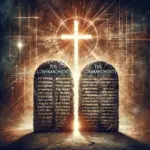People have asked many times, ‘What is Downgrade?’ I started using the word incessantly and intentionally a little over a year ago in the hopes that the term would catch on (which it wildly has) and begin to frame our understanding of the modern evangelical slide in historic terms.
The Downgrade, as a descriptor for the not-altogether-new phenomena we are experiencing in evangelicalism, is a throw-back to a similar environment among the Baptists and other Nonconformists in the life and times of CH Spurgeon. Two articles published in Spurgeon’s Sword and Trowel monthly magazine leveled charges against his fellow evangelicals, chiefly the Presbyterians, Baptists and Independents. Written by Spurgeon’s friend, Schindler, the first two articles indict their fellow churchmen for – in the lack of persecution from the Church of England – neglected doctrinal matters and reverence for excitement, fun and frivolity. This was causing, in Schindler’s estimation, a “Down Grade” which was careening the church toward the depths of irrelevancy and unfaithfulness “at breakneck speed.” The backlash against Schindler’s accusations was incredible and violent. Clergy persons across England rose in opposition to the Prince of Preachers for including the articles in his magazine and thus, giving the accusations his endorsement.
It was then that the Prince himself stepped in to lead the charge and take the full brunt of their attacks and with volley after volley, laying mighty blows across the brow of those denying the Down Grade. Spurgeon had apparently been holding this in for some time (perhaps the entire course of his ministry), hopeful for peace, but once the first shot was fired, the war had begun. The epic battle would end in Spurgeon’s death.
His first personal offensive action in the struggle to reclaim the Gospel from the culture of Downgrade came in August of 1877. In defense of Schindler’s findings, Spurgeon checked for dry powder and fired with both barrels. His article began by the statement of truth, “No lover of the Gospel can conceal from himself that the days are evil.” Understand the crushing weight and context of that statement. The response from clergy all around England is that the days were not evil, and if so, they were not that evil. The accusers claimed that Schindler’s assertions were nervousness, paranoia, or even mental illness. Things were not that bad, they insisted. By Spurgeon beginning his article this way, he fearlessly fired the opening shot into the forehead of his enemy. The gentle giant was slow to anger, patient with his delayed criticism, and hopeful for peace. Once the war began, however, he did not flinch from pulling the trigger.
We are willing to make a large discount from our apprehensions on the score of natural timidity, the caution of age, and the weakness produced by pain; but yet our solemn conviction is that things are much worse in many churches than they seem to be, and are rapidly tending downward.
The symptoms were all too real. No matter how they characterized the state of affairs in most churches, they could not understate the problems. We are naturally timid, apprehensive and cautious, but even the the most timid, most apprehensive, and most cautious can’t help but notice that the church is in trouble.
A new religion has been initiated, which is no more Christianity than chalk is cheese; and this religion, being destitute of moral honesty, palms itself off as the old faith with slight improvements, and on this plea usurps pulpits which were erected for gospel preaching. The Atonement is scouted, the inspiration of Scripture is derided, the Holy Spirit is degraded into an influence, the punishment of sin is turned into fiction, and the resurrection into a myth, and yet these enemies of our faith expect us to call them brethren, and maintain a confederacy with them!
Spurgeon didn’t say the pastors of England were preaching the Gospel incorrectly. He said that they preaching a false Gospel. He didn’t mince words. In their preaching was no moral honesty. They attempted to “improve” the religion and in doing so, replaced the pulpit and preaching with their tinkering experiments. And worse yet, Spurgeon lamented, these men wanted to be in confederacy with them and insist upon being called brothers.
At the back of doctrinal falsehood comes a natural decline of spiritual life, evidenced by a taste for questionable amusements, and a weariness of devotional meetings…As for questionable amusements—time was when a Nonconformist minister who was known to attend the play-house would soon have found himself without a church. And justly so; for no man can long possess the confidence, even of the most worldly, who is known to be a haunter of theatres. Yet at the present time it is matter of notoriety that preachers of no mean repute defend the play-house, and do so because they have been seen there. Is it any wonder that church members forget their vows of consecration, and run with the unholy in the ways of frivolity, when they hear that persons are tolerated in the pastorate who do the same? We doubt not that, for writing these lines we shall incur the charge of prudery and bigotry, and this will but prove how low are the tone and spirit of the churches in many places. The fact is, that many would like to unite church and stage, cards and prayer, dancing and sacraments. If we are powerless to stem this torrent, we can at least warn men of its existence, and entreat them to keep out of it. When the old faith is gone, and enthusiasm for the gospel is extinct, it is no wonder that people seek something else in the way of delight. Lacking bread, they feed on ashes; rejecting the way of the Lord, they run greedily in the path of folly.
Spurgeon’s diagnosis should alert us to modern evangelicalism’s decline. Doctrinal falsehoods lead to questionable amusements, weariness of devotion, worldly entertainment, and even a confusion of church and stage! Spurgeon acknowledges that making these claims will label you a prude or a bigot, and it would suffice to say, legalist and Pharisee. Spurgeon is not optimistic that people will listen to him, but feels the burden to at least warn people to flee from the flood of error.
Then, Spurgeon pleads with the accusers to turn back to the Gospel…
Where the gospel is fully and powerfully preached, with the Holy Ghost sent down from heaven, our churches not only hold their own, but win converts; but when that which constitutes their strength is gone—we mean when the gospel is concealed, and the life of prayer is slighted—the whole thing becomes a mere form and fiction. For this thing our heart is sore grieved.
Amen and amen! With the Gospel we can hold our own and win converts. When the Gospel is removed, we shrivel up and die! Oh, today’s MegaChurches give it the opposite appearance, but how many churches have they drained to accomplish such a feat? And what is demonstrated in those place is not genuine revival, but only “mere form and fiction.” And this is the fault, Spurgeon argues, of the clergy.
The case is mournful. Certain ministers are making infidels. Avowed atheists are not a tenth as dangerous as those preachers who scatter doubt and stab at faith…Germany was made unbelieving by her preachers, and England is following in her track. Attendance at places of worship is declining, and reverence for holy things is vanishing; and we solemnly believe this to be largely attributable to the scepticism which has flashed from the pulpit and spread among the people. Possibly the men who uttered the doubt never intended it to go so far; but none the less they have done the ill, and cannot undo it. Their own observation ought to teach them better. Have these advanced thinkers filled their own chapels? Have they, after all, prospered through discarding the old methods? Possibly, in a few cases genius and tact have carried these gentry over the destructive results of their ministry; but in many cases their pretty new theology has scattered their congregations. In meeting-houses holding a thousand, or twelve hundred, or fifteen hundred, places once packed to the ceiling with ardent hearers, how small are the numbers now! We would mention instances, but we forbear. The places which the gospel filled the new nonsense has emptied, and will keep empty.
Listen to Spurgeon’s heart breaking over the matter…
These destroyers of our churches appear to be as content with their work as monkeys with their mischief. That which their fathers would have lamented they rejoice in: the alienation of the poor and simple-minded from their ministry they accept as a compliment, and the grief of the spiritually-minded they regard as an evidence of their power. Truly, unless the Lord had kept his own we should long before this have seen our Zion ploughed as a field.
Zion plowed as a field… if that’s not a description of modern American evangelicalism, I don’t know what is. And yet, there is hope in the pews. Many laypeople have not yet bent their knee to Ba’al as have their pastors, and God’s remnant yet exists in Zion…
A student from a certain college preached to a congregation we sometimes visit such a sermon that the deacon said to him in the vestry, “Sir, do you believe in the Holy Ghost?” The youth replied, “I suppose I do.” To which the deacon answered, “I suppose you do not, or you would not have insulted us with such false doctrine.” A little plain-speaking would do a world of good just now. These gentlemen desire to be let alone. They want no noise raised. Of course thieves hate watch-dogs, and love darkness. It is time that somebody should spring his rattle, and call attention to the way in which God is being robbed of his glory, and man of his hope.
Any criticism toward their watered-down ways and they’ll despise you as much as a thief despises a watchdog. And yet, Spurgeon’s last comment in his first mighty advance against the Downgrade must convict us of our task and commit ourselves to not being moved by the wicked…
If for a while the evangelicals are doomed to go down, let them die fighting, and in the full assurance that their gospel will have a resurrection when the inventions of “modern thought” shall be burned up with fire unquenchable.
*Thanks to this material from Spurgeon’s Down Grade being made available via John MacArthur and Phil Johnson at the Spurgeon Archives.












